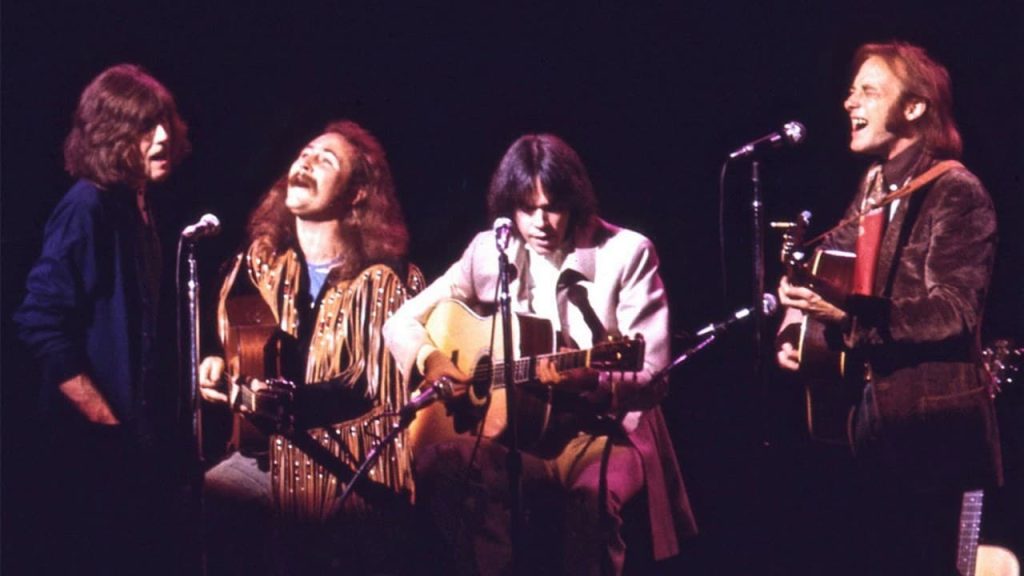
A Journey of Resilience and Hope: Carry On by Crosby, Stills, Nash & Young
“One morning I woke up and I knew you were really gone… Go your way, I’ll go mine and carry on.” These opening lines of Carry On, from the iconic 1970 album Déjà Vu, immediately establish a theme of moving forward amidst change and loss. This wasn’t just another song; it was an anthem of resilience, echoing the sentiments of a generation navigating turbulent times.
Carry On wasn’t released as a single on its own, but its presence on Déjà Vu significantly contributed to the album’s massive success. Déjà Vu topped the Billboard Pop Albums chart for weeks, becoming one of the best-selling albums of the 1970s. While pinpointing a specific chart position for Carry On is difficult since it was an album track, its enduring popularity and radio airplay cemented its status as a classic rock staple.
The song is essentially two distinct parts melded seamlessly into one. The first section, a poignant reflection on parting ways, showcases Stephen Stills’s songwriting prowess. It speaks to the universal experience of relationships ending and the necessity of carrying on despite the pain. The lyrics are simple yet profound, resonating with anyone who has faced heartbreak or the bittersweet reality of change.
The second part transitions into a more upbeat and hopeful tempo, incorporating elements of gospel and spirituals. This section, often referred to as “Questions,” takes on a more philosophical tone, pondering life’s big questions and the search for meaning. This shift in mood is masterfully executed, creating a dynamic listening experience that takes the listener on an emotional journey.
The creation of Déjà Vu itself was a tumultuous process, mirroring the themes explored in Carry On. The four members of Crosby, Stills, Nash & Young were all strong personalities with distinct musical visions. The recording sessions were reportedly fraught with tension, personal conflicts, and creative disagreements. Yet, out of this friction emerged a masterpiece, an album that captured the zeitgeist of the era.
Carry On, in particular, embodies this struggle and ultimate triumph. It’s a testament to the power of collaboration and the ability to create something beautiful even amidst chaos. The song’s message of perseverance and hope resonated deeply with audiences in the 1970s, a time of social and political upheaval, and continues to resonate today.
For those who lived through that era, Carry On evokes a powerful sense of nostalgia. It’s a reminder of a time when music played a central role in shaping cultural consciousness. It reminds us of the power of song to offer solace, inspire hope, and unite people in shared experience. The intricate harmonies, the layered instrumentation, and the raw emotion in the vocals all contribute to the song’s timeless appeal.
Listening to Carry On today is like revisiting an old friend. It’s a reminder that even in the face of adversity, we have the strength to carry on. It’s a message of hope, resilience, and the enduring power of the human spirit. It’s a song that has aged gracefully, its message as relevant today as it was over five decades ago. It reminds us that through change, through hardship, and through life’s inevitable ups and downs, we must find the strength within ourselves to “carry on.” The song closes out with the band repeating the line “Love is coming to us all”, a fitting end to a song about resilience and hope.